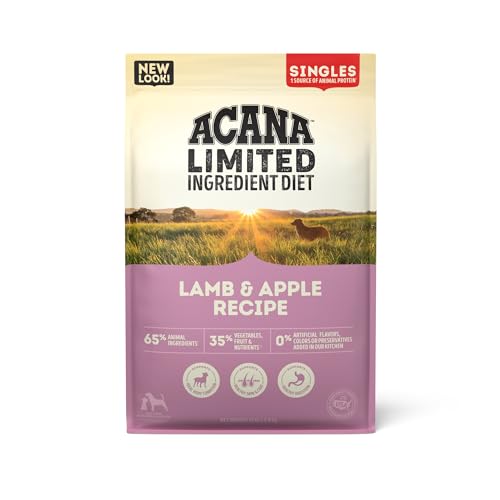Asparagus, also known as sparrow grass, is one of the most nutritious vegetables out there.
Being remarkably low in calories and sodium content makes it a welcome addition to people who are weight-conscious. Apart from that, asparagus comes with a host of other health benefits for humans.
But can dogs eat asparagus? The simple answer is ‘’yes’’, dogs can eat asparagus.
However, just by virtue of being a green vegetable, asparagus might not be great for your dog in most circumstances. Occasional nibbling is fine. But you shouldn’t make the vegetable part of your dog’s staple diet.
Read on to also discover the specific parts of asparagus that experts recommend. And possibly the portions and how frequent you should serve the vegetable to your canine.
Is Asparagus Good For Dogs?
As we have mentioned, it depends on a few factors. Asparagus contains lots of health benefits that your dog might find useful.
Of course, we should emphasize that many of the studies conducted on the health benefits of asparagus involved human samples.
However, it isn’t difficult to extrapolate these benefits into other animals, our dogs included.
The following are various ways your furry companion could benefit from asparagus.
1. Plenty of Dietary Fiber
First, asparagus is rich in dietary fiber. Therefore, it can greatly help your dog deal with lots of gastrointestinal issues such as constipation and diarrhea.
Half a cup of this vegetable boasts up to 1.8 grams of dietary fiber. Much of this is insoluble fiber that binds to stool to enhance your dog’s bowel movements.
Apart from digestive issues, the high fiber content in asparagus may also help your dog keep certain diseases at bay. Some of these include heart and cardiovascular diseases, diabetes and even high blood pressure.

2. Low Calorie Content
Asparagus is low in calorie content. For every 90 grams of the vegetable, there are only 20 calories.
Therefore, you can comfortably feed it to your dog without worrying about diseases associated with high calorie intake, such as diabetes and obesity.
So, if you have always wondered to yourself, can diabetic dogs eat asparagus? Well, you got your answer right there.
- One (1) 13 lb bag of ACANA Singles Limited Ingredient Lamb & Apple Recipe Dry Dog Food
- Made with lamb and lamb liver, this grain free* dog food is carefully crafted with 65 percent** animal ingredients and 35 percent*** whole fruit,…
- Features a delicious freeze dried dog food coating for a delicious taste your dog will love and contains a blend of fiber, prebiotics and probiotics…
Last update on 2025-01-10 / Affiliate links / Images from Amazon Product Advertising API
3. Rich in Antioxidants
Sparrow grass is also a rich source of antioxidants. Antioxidants help lower the effects of oxidative stress and other forms of cell damage.
Consequently, they help prevent premature aging, chronic diseases and malignant inflammations such as those caused by cancers.
Apart from curing malignancies, chronic pain and arthritis will also be a thing of the past.
Examples of antioxidants found in the vegetable include Vitamins C and E, polyphenols and flavonoids.
Various tests have confirmed that flavonoids such as kaempferol, quercetin, and isorhamnetin are resourceful in combating blood pressure, inflammations, and malignancies among humans. And there is no doubt that dogs can also enjoy these benefits.
4. Abundance of Water
It is also important to remember that asparagus is rich in water content.
As a matter of fact, the vegetable contains up to 94% water content. This could improve the health of your dog in various ways.
First, it can help manage dietary problems such as overeating, considering water has a filling effect.
Also, you can leverage the high water content in asparagus to help rehydrate a dehydrated dog. Needless to mention, water is a great remedy for constipation.
5. Blood Clotting and Improved Immunity
If you have hyperactive dogs at home, especially puppies and the smaller breeds, there is always the nagging concern of the dogs sustaining injuries during their playtimes. But with a bite of asparagus, you need not fret.
The vegetable packs vitamin K that helps with coagulation. That means even after an injury, your dog will not bleed excessively.
Vitamin C also generally contributes to stronger muscle and bones.
6. Improving Bladder Movements
Have you ever dealt with a dog that’s suffering from urinary problems? If you have, you understand how agonizing the situation can be.
Thankfully, you can administer a dose of asparagus regularly to your dog to help him combat various forms of urinary infections.
An example is Urinary Tract Infection. Indeed, sparrow grass is one of the few home remedies that you can use to treat urinary infections among your pets.
The vegetable packs essential amino acids such as asparagine. Such amino acids are popular for their diuretic effects.
But you shouldn’t just feed asparagus to dogs as a health remedy. Even dogs that are totally healthy require occasional bites of asparagus spears. That is because it naturally enhances bladder movements. As a result, it flushes out toxins from the dog’s body.
Examples of such toxins include excess salt and fluid buildup. That explains why female reproduction experts usually recommend the vegetable for expecting mothers.
During pregnancy, it is imperative that your dog empties her bladder as regularly as possible, as that helps prevent the onset of urinary conditions like UTI. And with a high abundance with folate, there are reduced chances of premature births or deformed puppies.
Apart from these, asparagus for dogs comes with lots of other benefits.
The vegetable contains significant proportions of potassium and phosphorus. Each of these comes with its health and immune-boosting benefits.
- 8-in-1 Formula – Zesty Paws Multifunctional Bites are functional supplement chews with premium ingredients that support physical performance,…
- Skin Health & Antioxidants – For animals with sensitive skin, this formula contains Cod Liver Fish Oil and Vitamin E to help maintain normal…
- Hip, Joint & Performance Support – Each dog chew features OptiMSM, a premium form of MSM for muscular support, which works synergistically with the…
Last update on 2024-12-17 / Affiliate links / Images from Amazon Product Advertising API
Cooked Or Raw – Which Is Better?
At this point, you could be wondering, is asparagus bad for dogs?
Though we have tried to capture as many benefits of the vegetable as possible, there are still certain circumstances where it could be injurious to your pet.
First off, you should understand which between raw and cooked asparagus is great for your furry companion.
You can either serve asparagus raw or cooked. Proponents of raw vegetables will argue that your pet enjoys all the nutritional benefits the vegetable contains. Which is absolutely true considering cooking destroys a significant amount of nutritional elements in food.
However, serving raw asparagus to your canine friend comes with its share of dangers.
First, there are always risks of choking. This is especially true if you serve the vegetable in portions that the dog might find difficult to swallow.

Remember that unlike humans, dogs do not take their time to chew food. Instead, they gobble it whole. So if feeding raw vegetables to your pooch, be sure to cut it into small, manageable portions.
It is also important to remember that dogs are obligate carnivores. That means their digestive system is only designed for a diet of meat.
As a matter of fact, dogs do not even have the right digestive juices to break down vegetables. Common side effects of eating unfamiliar foods include vomiting, diarrhea, flatulence, and constipation.
Lastly, raw asparagus tends to contain residues of pesticides and other preservatives.
Washing alone may not reduce these toxins to manageable levels. Which is why you are better off cooking asparagus before serving it to your doggy. And that possibly helps settle the question – is asparagus toxic to dogs?
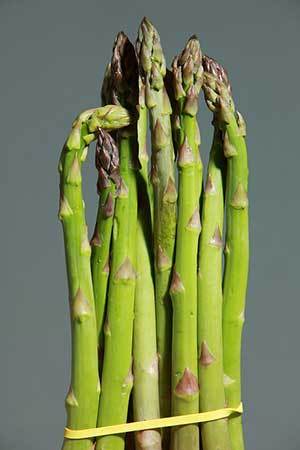
Now, onto cooking. Can a dog eat cooked asparagus?
The plain answer is yes. However, it again depends on the cooking method you use.
There are various ways to prepare asparagus. These include boiling, steaming, grilling, sautéing and roasting. You also have the option of purchasing precooked, canned asparagus.
The first benefit of serving cooked asparagus is that your dog finds it easier to digest. But which cooking method is the best? Can dogs eat grilled asparagus? What of pickled asparagus?
It is important to remember that pickling is specifically intended for human foods. As soon as the vegetable soaks in brine and consequently ferments, it becomes very toxic to your dogs.
Serving grilled asparagus to your dog isn’t healthy either.
Grilling drains the vegetable of its natural water content and mineral elements. It also introduces an unnecessary amount of fat to the vegetable. Plus, the food ends up tougher than your dog can digest.
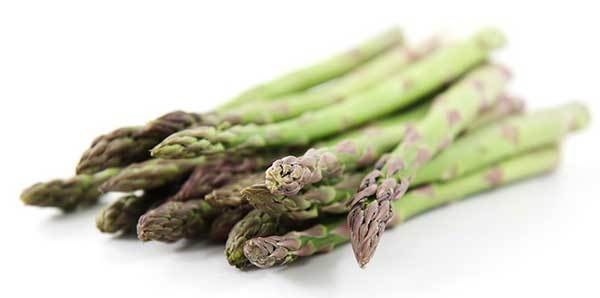
But whichever of the two methods you use, be sure to not add too much salt, condiments or any seasonings. Never assume that dogs find seasoning tasty. Remember that humans and dogs have different taste buds.
Plus, seasoning could trigger a host of side effects such as vomiting or diarrhea.
So, no onions or garlic whatsoever. You can add a little fat or butter. Again, too much fat could lead to weight gain. Not to mention, it can make your dog sick.
What of The Soup? Can Dogs Eat Asparagus Soup?
The soup is fine as long as it is not seasoned.
You can look to it as a creative way of making your dog take in enough fluids. In fact, the soup could greatly help dehydrated dogs.
Last update on 2024-12-19 / Affiliate links / Images from Amazon Product Advertising API
Which Is Better Among The Various Kinds Of Asparagus?
Asparagus comes in several variants. In terms of color, we have white, green, and purple colors. And in terms of the edible elements, there is the shoots, the stalk and the leaves.
Each of these variants impact your dog in one way or another. So, can dogs eat purple asparagus? What of the white variants? Can dogs eat white asparagus?
In order to answer these questions, we should first understand what these variants are.
First, asparagus is termed white when it is grown under conditions with limited supply of sunlight. That means it has fewer nutritional value as compared to the purple and green types.
White variations are rare, and are usually grown under controlled conditions. You will hardly find a white asparagus outdoors.
Though it contains fewer nutritional elements, it is lauded for its mild flavor. That could make it more ideal for dogs than the strong-flavored varieties.

Green asparagus refers to one that was grown in an abundance of sunlight. It is the most common of the three variants, as well as contains the strongest flavors.
Purple asparagus is known for its fruity and highly delicious taste. However, it contains significantly lower amounts of dietary fiber compared to the other two. So, which of the three is the best for your dog?
If choosing based on the gentleness of flavor, you can go for the white variants. However, if you are looking for asparagus that is packed with the right nutritional elements, then you are better off with green asparagus.
If we were to make a choice from a human point of view, the purple variety would be the best option. That is due to its additional fruity taste. But when it comes to dogs, other factors like nutrition and ease of digestion override taste considerations.
What of the edible elements?
Experts recommend feeding asparagus shoots/spears to your dogs. This is especially true if you are intending on serving it raw.
Leaves, stalks, and ferns are discouraged since they are tougher to digest. They would need thorough boiling or steaming.
So, can dogs have asparagus?
Well, as far as food preparation is concerned, we would say it depends on the method of cooking you choose.
Can You Feed Asparagus to Your Puppies?
All this while, we have been trying to investigate how asparagus interacts with the system of mature dogs. But, can puppies eat asparagus too?
The answer is yes. However, there is a caveat. Puppies require plenty of fats, amino acids as well as calories so they can grow fast. And as we mentioned earlier on, asparagus does not pack plenty of these.
Apart from these reduced nutritional elements, asparagus could also cause choking and gastrointestinal problems to your pups. Their lack of well-developed teeth for tearing food only complicates the equation for them.

Before feeding the vegetable to puppies, you should ensure they are already familiar with vegetable diets. Then, serve only boiled asparagus to avoid instances of choking and food poisoning.
You might want to begin with asparagus soup and watch how your puppy develops a taste for the vegetable.
Can Asparagus Hurt Dogs?
A diet of asparagus comes with lots of side effects. The following are some of these issues:
1. Gastrointestinal complications such as loss of appetite, vomiting, diarrhea, abdominal pains, and flatulence.
2. Choking hazards.
3. Toxicity, especially if the vegetable was grown under intense pest control conditions, or is laced with preservatives. That explains why you should thoroughly wash and cook the vegetable before serving it to your dog.
Toxicity could also result from buying expired canned asparagus. Always check on expiry dates when buying pre-cooked asparagus.
4. Pungent smell in urine, as well as a green color in poop. Though not really signs of serious medical conditions, these symptoms are uncomfortable to live with. The pungent smell is more perceptible to dogs due to their heightened sense of smell.
5. Swelling and redness.
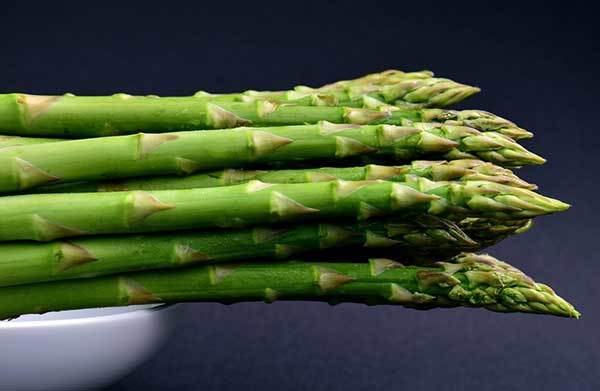
Conclusion
So, can a dog eat asparagus?
Yes, dogs can eat asparagus. Just ensure you introduce the vegetable to its diet in small, measured amounts.
Observe how the dog reacts and if there are adverse reactions, withdraw the food from its diet straightaway.
If the dog shows strong aversions to asparagus but you still want it to nibble on some vegetables for nutritional benefits, there are plenty of options you can consider. Some of these include cucumber, celery, and carrots.
Whatever you do, never introduce any vegetable food to your dog’s diet before talking to your vet.
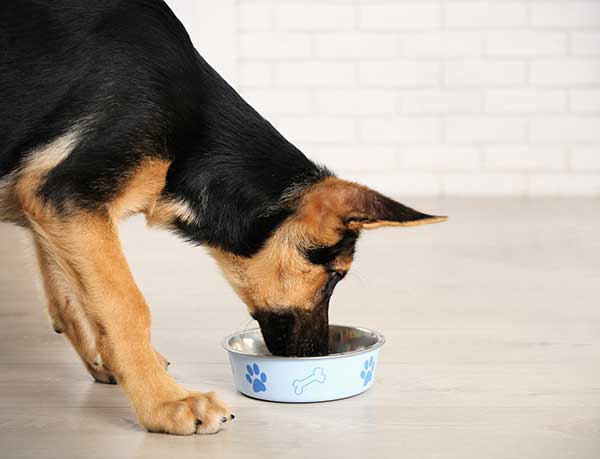
Checkout Our Favorite Dog Products
1. BEST PUPPY TOY
We Like: Snuggle Behavior Toy with Heart Beat & Heat Pack – Ideal toy for new puppies.
2. BEST DOG TRAINING PROGRAM
We Like: Doggy Dan The Online Dog Trainer – Stop any dog problem and raise the perfect puppy with The Online Dog Trainer.
3. Best Bone Broth for Dogs
We Like: (Solid Gold – Human Grade Bone Broth for Dogs) – Simmered Beef Bone Broth With Turmeric Provides A Nutrient-Dense And Flavorful Addition To Your Dog’s Meal + Rich In Natural Collagen From Beef Bones.
4. BEST DOG DNA TEST
We Like: Embark Dog DNA Test – Embark screens for over 250 dog breeds + tests for 170+ genetic diseases including MDR1 drug sensitivity, glaucoma, degenerative myelopathy, and dilated cardiomyopathy, some of the most common adult-onset diseases in dogs.
5. BEST DOG PUZZLE TOY
We Like: Outward Hound Interactive Puzzle Toy – Every dog loves chasing squirrels at the park. The Outward Hound Hide-a-Squirrel Puzzle Toy gives your dog the same feeling as though he was outdoors chasing live squirrels.


